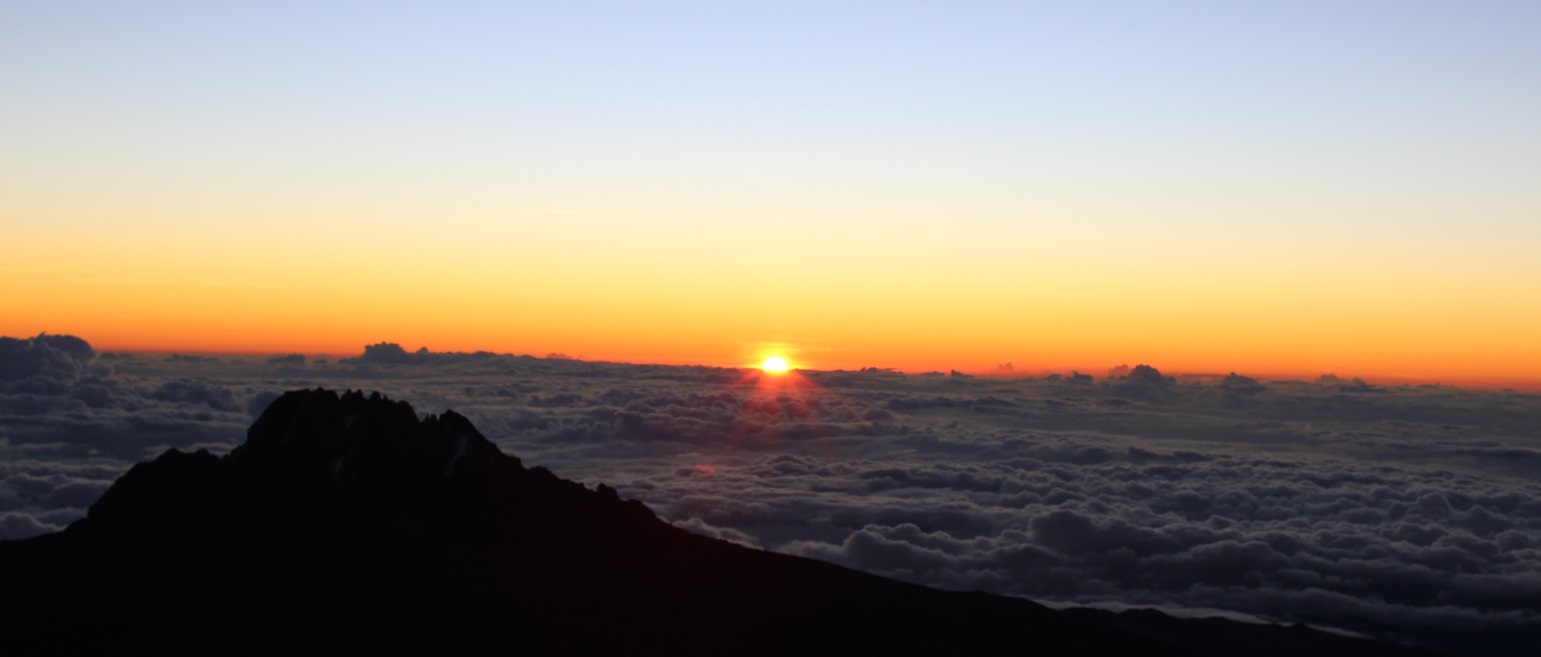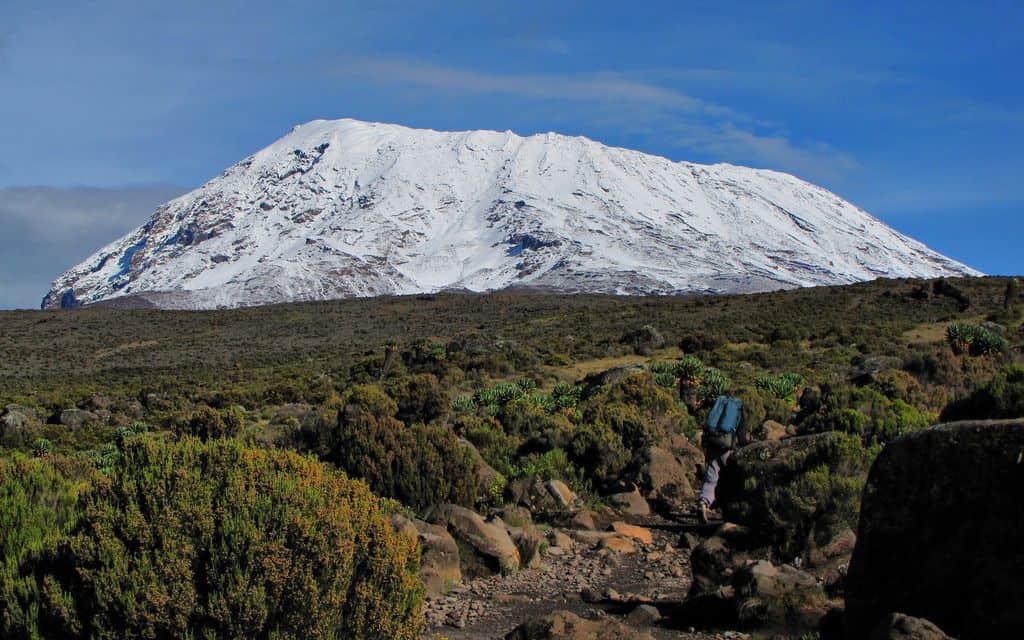Due to Mount Kilimanjaro’s proximity to the equator, this region does not experience the extremes of winter and summer weather, but rather dry and wet seasons. Therefore, the best time to climb Kilimanjaro tends to be the warmest and driest months. The primary issue is safety, as the risks associated with climbing increase significantly when the weather is foul. The effects of rain, mud, snow, ice and cold can be very strenuous on the body. Correspondingly, your chance of a successful summit also increases significantly with nice weather. Of course, the mountain gets more foot traffic during these periods as well.

It is possible to climb Kilimanjaro year round. January, February, and September are considered to be the best months in terms of weather, and correspondingly are the busiest months. From January through mid-March are the warmest months, with clear skies in the mornings and evenings. During the day, clouds may appear along with brief showers. From the end of March to early June is the long rainy season Visibility may be low due to heavy clouds, but the crowds are gone. June, July, and August are good months, but it is colder. Following September and October, the short rainy season lasts from November through the beginning of December, where afternoon rains are common, but skies are clear in mornings and evenings.
Some climbers prefer to summit during a full moon.
When the peak of Kilimanjaro and magnificent glaciers are lit up by the full moon, the view is absolutely stunning. For this reason alone, some climbers schedule their trek to coincide with this celestial event, occurring once a month. However, a practical reason for climbing at these times is that a bright moon along with a clear sky will improve your visibility throughout your climb, and most importantly, during the summit attempt.
To summit during a full moon, a 7-day climb should start 5 days prior to the full moon date. It is not necessary to summit on the exact full moon date to take advantage of moonlight. A summit on the day before or day after is also beneficial. We offer several group climbs with full moon summits every month during the dry season. These dates tend to be the first to book completely full well in advance.
For those who favor a less crowded climb, avoid the full moon completely as these dates attract many climbers. Another method of dodging crowds is to choose an “off” day of departure. Most climbers will begin their climbs on Saturday, Sunday or Monday, with routes lasting 6 to 7 days. We have many clients who climb with or without the full moon, and clients are equally satisfied with either itinerary.
You can go anytime, but do it sooner rather than later.
What makes Mount Kilimanjaro unique is that despite its close proximity to the equator, it is crowned with ice. The glaciers have existed here for more than 11,000 years. They used to be more than 300 feet (100 m) deep and extended 6,500 feet (2,000 m) from the mountain top. However, due global warming and long term climactic cycles, the ice has been vaporizing at an alarming rate. Some scientists estimate that Mount Kilimanjaro’s ice cap will be completely. So if you are contemplating the climb, do yourself a favor and do it sooner rather than later. The glaciers are something you do not want to miss.
